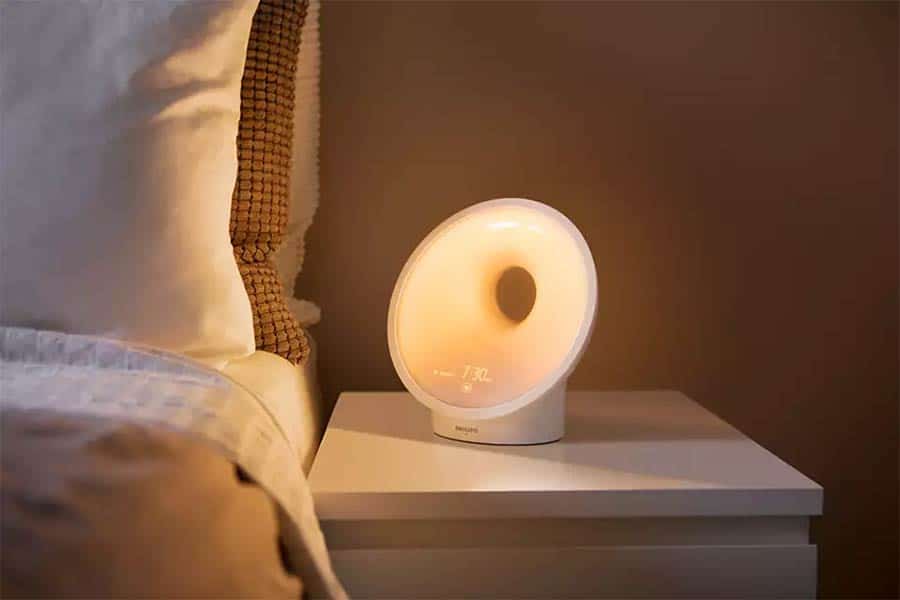A good night’s sleep depends on your day. It sounds strange, but it’s a fact: what we do during the day directly affects how we sleep. For example, the amount of time we spend in the sun.
Light is the main external aspect that influences the sleep of a person. While many people naturally feel that it’s simpler to sleep when the light is dim. But the connection between light and sleep goes a lot further. How are these processes related and how can knowing about them help us get better sleep? Let’s figure it out.
Reasons For Insomnia
Here we provide reasons for insomnia along with their solutions:
- Mental health problems like stress and depression: A person should visit his doctor if the problem is serious.
- Lack of sunlight intake: Walk more under sunlight
- Use of alcohol and other addictive substances: You can ask for support from alcohol support centers that help people to stay sober.
- Poor sleeping habits: Avoid using the phone before sleeping
- Poor sleep hygiene: Avoid alcohol before bedtime.
How Does Sun Light Affect Sleep
Effect Of Light On Circadian System
The alternation of light and darkness governs our sleep cycle. In science, we call this circadian synchronization system. It is like a clock built-into our bodies.
The circadian system helps control digestion, the immune system, pressure, appetite, and mental energy. At a certain time, the circadian system sends a signal to the body that it is time to sleep, and it produces the appropriate hormones.
As soon as there is light around us, the brain and all organs receive a signal that it is necessary to wake up and be alert. Exposure to sunlight triggers the release of daytime hormones and neurotransmitters that set our biological clock. The main ones are serotonin, melatonin, and cortisol.
Effect of Light On Serotonin
We know that serotonin is one of the hormones of happiness. It turns out that it is responsible not only for a sense of well-being but also for setting the body’s internal clock.
About 95% of serotonin is present in the gastrointestinal tract. And its secretion depends on the diet, the level of physical activity, and the amount of light that we receive during the day. Special light-sensitive receptors in the retina send information to the brain: if our internal clocks are set correctly, this process goes on smoothly day after day.
In the modern world, we often do not feel a lack of natural light – as many people use artificial lighting. Research on sunlight and sleep deprivation proves that staying longer in sunlight during the day time removes the difficulty to fall asleep at night.
Effect of Sunlight On Melatonin
Melatonin is not a sleep hormone because it does not induce sleep by itself. However, it directly affects the quality of sleep, creating the conditions in the body suitable for this.
Melatonin is produced by the pineal gland in the brain and other tissues that send the sleep signal to the cells. This happens naturally at nightfall, but we can prevent this if we don’t get enough sunlight at the right time of day.
Effect Of Sunlight On Cortisol
Cortisol is another hormone that our circadian system needs to synchronize sleep. In the morning we wake up because the adrenal glands have prepared a fresh portion of this hormone. And in the evening we fall asleep because its reserves have run out.
Sometimes cortisol is at its peak when it should be lowered, and vice versa. You are probably familiar with the state when you feel physically tired in the late evening but cannot sleep. Or when in the morning, instead of feeling rested, you barely leave your bed. All of this suggests that cortisol is being released at the wrong time.
Sunlight also affects the secretion of cortisol. This is explained by evolutionary biology: in the daytime, our ancestors were able to obtain food and maintain habitat more actively. Interestingly, in sunny weather, the level of cortisol decreases more in the evening than in cloudy weather.
Tips To Take Sunlight Properly
Here are some tips on how sunlight can help you sleep well.
Tip 1: Go Out In The Sun At A Good Time
Our biological clock is most sensitive to sunlight from 6:00 to 8:30 am in the morning. During this time, exposure to the sun is most beneficial. And the best effect can be achieved if you are outside for at least half an hour.
Tip 2: Take Healthy Breaks
Take advantage of every opportunity to be in natural light. Take breaks from work for 10-15 minutes to go outside. Hold meetings in the fresh air, or at least stand by the window more often.
Tip 3: Use Sunglasses With Care
Sunglasses protect our eyes from hazardous radiation, but at the same time, block the natural light needed for hormones to be produced properly. If you decide to wear glasses, make sure they are with good quality UV protection. Low-quality glasses let in even more dangerous radiation while keeping your pupils wide open.
Tip 4: Get Light Beyond The Window
Getting sunlight from a window is not very helpful. Glass transmits harmful UVA rays that increase the risk of skin cancer and blocks UVB rays that compensate for the former.
Tip 5: Use Gadgets That Simulate Sunlight
In extreme cases, if you do not have the opportunity to be outside at all, you should get gadgets that simulate sunlight like sun torch etc. Keep in mind, however, that while all of these devices are useful, they will not replace a short walk in the open air even in the cloudiest weather.

Philips Somneo sleep and wake up light
Conclusion
If you have consistent sleeping problems that are influencing your energy, thinking, or temperament, you should chat with a doctor who can best understand the reason, including any potential circadian issue.
Moreover, you should find ways to improve your sleep hygiene. Avoid taking caffeine, have a steady rest plan, and do exercise. These are practices that help you get healthy sleep.















